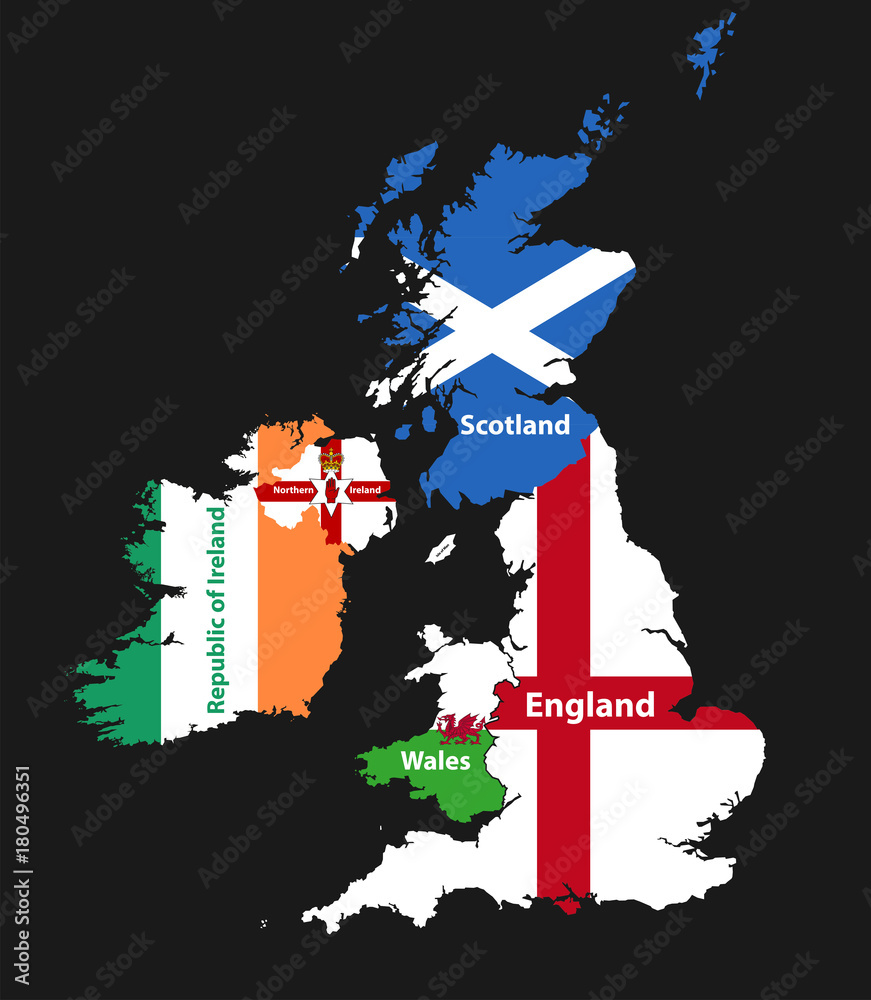The United Kingdom, a conglomeration of four distinctive nations—England, Scotland, Wales, and Northern Ireland—presents a captivating tapestry of faith, culture, and history. Each part of this union, while distinct in its identity, contributes to a larger narrative woven through shared religious traditions and divergent interpretations of Christianity. The fascination with the United Kingdom from a Christian perspective lies not only in its historical significance but also in the modern interplay of tradition and progressive thought.
England, the most populous and economically dominant country within the UK, offers a rich ecclesiastical history. The roots of Anglicanism took hold amid the tumultuous tides of the Reformation. The Church of England emerged as a central figure, embroiled in both political and religious complexities during the reign of Henry VIII. Yet, its influence extends beyond mere institution; it shapes societal norms, arts, and education. The enduring architecture of cathedrals, such as Westminster Abbey and St. Paul’s Cathedral, serve as monumental testimonies to a continued engagement with the divine, attracting both pilgrim and tourist alike.
In England, there exists a multifaceted relationship with faith, often oscillating between reverence and skepticism. The Church’s historic role as the moral compass contrasts starkly with a rising secularism. As society grapples with contemporary issues—such as socio-economic disparity, ecological crises, and global conflicts—these challenges prompt a renaissance of theological inquiry. Christian communities are increasingly tackling these issues head-on, inspiring a resurgence of social justice movements, feeding the hungry, and advocating for the marginalized. This fervor for social involvement might hint at a desire to reclaim the church’s relevance in an era characterized by individualism and disenchantment.
Moving northwards, Scotland presents a distinct tableau of Christian experience framed by its turbulent history and cultural independence. The Scottish Reformation, sparked by John Knox and his followers, has profoundly altered the religious landscape. The establishment of the Presbyterian Church as a prevailing force reflects a commitment to democratic governance within ecclesiastical structures, distinguishing it from the hierarchical Anglican model. This unique twist on Christianity fosters a sense of community and solemnity, seen in traditions such as the Kirkin’ o’ the Tartan, which celebrates the connection between faith and national identity.
Scotland’s rich liturgical traditions and spiritual fervor continue to animate the lives of its people. The Scottish landscape, dotted with historic churches and vibrant congregations, serves as a reminder of the importance of place in spiritual practice. The rugged beauty of the Highlands can evoke an almost transcendental encounter with the divine, compelling believers to consider the intricate relationship between creation and the Creator. However, like its southern counterpart, Scotland faces a drop in church attendance, raising questions about the future of faith amidst modernity’s allure. The juxtaposition of a vibrant cultural heritage with a declining institutional practice fuels a compelling inquiry into what spirituality means today.
Wales, known for its lyrical heritage and poetic traditions, offers a fascinating exploration of Christian perseverance amid cultural pride. The revivalist movements of the 18th and 19th centuries imbued the Welsh with a profound sense of spiritual awakening, flourishing in hymn-singing and fervent worship. The Welsh language itself is interwoven with Christian expression, as evident in the beloved hymns sung in chapels across the country. This linguistic tapestry reinforces the identity of the Welsh people, making faith a core component of their cultural framework.
The contemporary context in Wales reveals a complex relationship with Christianity. On one hand, the chapel remains a social hub in many communities; on the other hand, the influence of global secular trends appears increasingly palpable. The challenge here mirrors that of the other nations within the UK: how to reconcile historical faith with present realities. The strong sense of community, fostered through shared practices and mutual support, hints at the potential for renewal and revitalization of spiritual life. It suggests that faith is not merely an individual endeavor but a collective experience woven into the fabric of society.
Lastly, Northern Ireland presents a case study of Christianity deeply entangled with political identity. The Troubles, a tumultuous period of conflict, revealed the often fraught intersection of faith and nationalism. The Catholic and Protestant communities navigated a landscape marked by division, their religious affiliations crystallizing into cultural identities. Nonetheless, the peace process has seen an infusion of reconciliation efforts through faith-based organizations, fostering dialogues aimed at bridging divides. This ongoing quest for peace, rooted in Christian values of love and forgiveness, mirrors the broader struggles faced by humanity.
The church’s role in Northern Ireland continues to evolve, as community leaders and congregations advocate for interfaith dialogue and inclusive social initiatives. The broader fascination with this region’s complexities often reflects a deeper longing for understanding—an exploration of how faith can transcend division and foster healing in a multi-faceted society. This transformative vision speaks to the heart of Christian teaching, reminding us of the potential for hope even amid strife.
Ultimately, the United Kingdom serves as a microcosm of the broader Christian experience, rich with diversity yet united in its search for meaning. Each of its nations—England, Scotland, Wales, and Northern Ireland—reveals a unique strand of faith that binds its peoples together yet allows for profound individual expression. As contemporary society grapples with the complexities of belief in a globalized world, the Christian narratives emerging from the UK will likely continue to inspire and challenge those who seek a deeper understanding of their faith, their culture, and their history.



